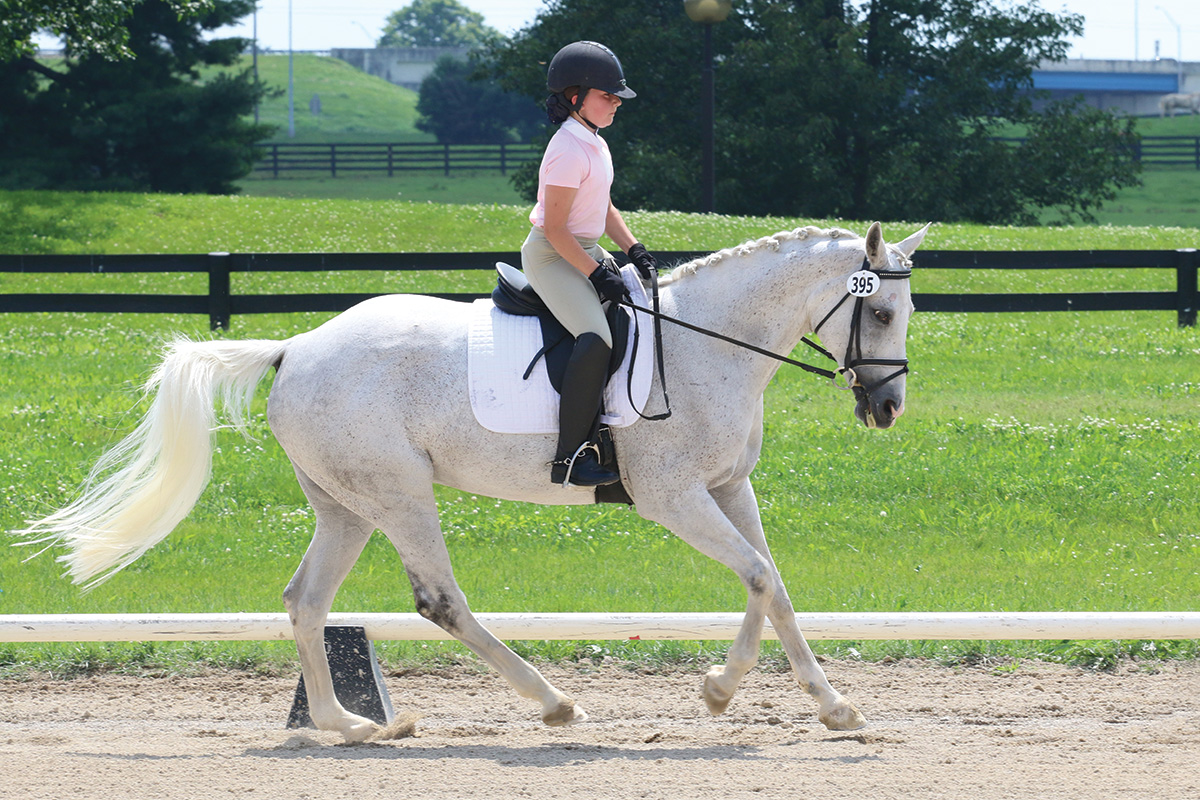So, you’re getting ready for your first horseback riding competition? That’s exciting! In this article, we’ll explore everything you need to know to prepare for the big day. From selecting the right horse to mastering your riding techniques, we’ll cover it all. Whether you’re a beginner or have some riding experience, we’ve got you covered. So, stay tuned to learn all about preparing for your first horseback riding competition!
Now, I know you might have some specific questions in mind, like what gear you’ll need or how to calm your nerves on the day of the competition. Don’t worry, we’ll address all of those questions and more throughout the article. We’ll provide you with valuable tips and advice from experienced riders, as well as helpful resources to further enhance your preparation. So, get ready to up your horsemanship game and make a confident entrance into your first horseback riding competition!
Preparing for Your First Horseback Riding Competition
So you’ve decided to take your horseback riding journey to the next level and enter your first competition. Congratulations! Competing in horseback riding events can be an incredible experience that allows you to showcase your skills and bond with your horse. However, to ensure a successful performance, it is important to prepare both yourself and your horse physically and mentally. In this article, we will guide you through the steps of preparing for your first horseback riding competition.
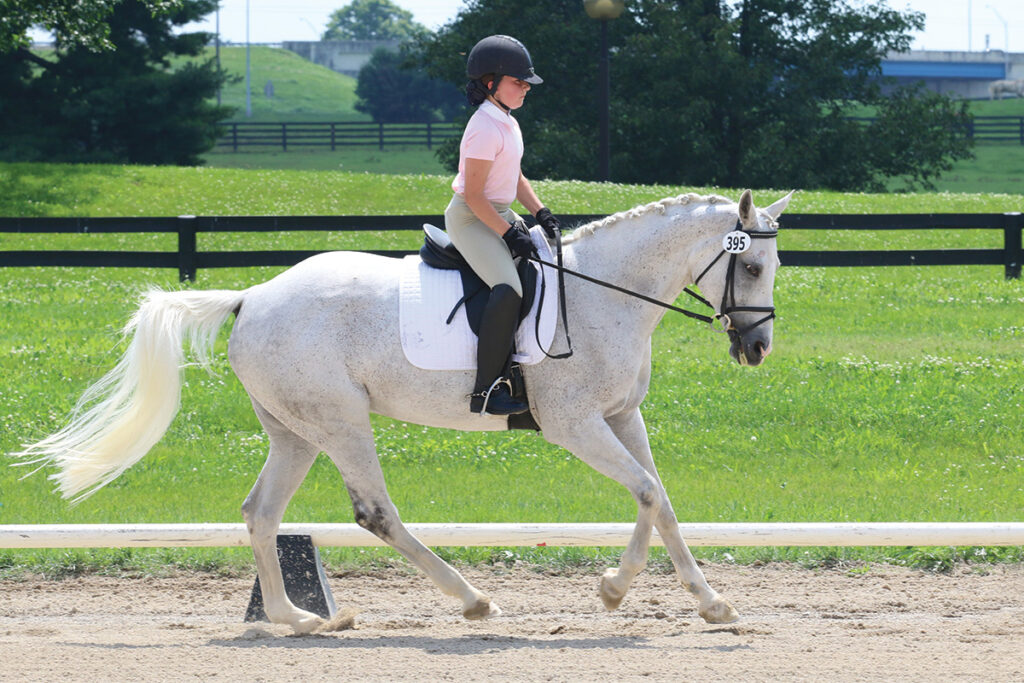
Improved Physical Fitness
One of the major benefits of horseback riding is the improvement of physical fitness. Regular riding sessions help to strengthen your core muscles, improve balance and coordination, and enhance overall body strength. Before entering a competition, it is crucial to ensure that you and your horse are physically fit and prepared for the demanding nature of the event. Incorporate cardio and strength training exercises into your routine to further enhance your performance on competition day.
Enhanced Mental Well-being
In addition to the physical benefits, horseback riding is known for its positive impact on mental well-being. Spending time with horses has been shown to reduce stress, anxiety, and depression. By immersing yourself in the world of horseback riding competitions, you are allowing yourself to experience the joy and sense of accomplishment that comes from connecting with these majestic animals. Your first competition will undoubtedly provide a boost to your mental well-being and leave you with a sense of pride and fulfillment.
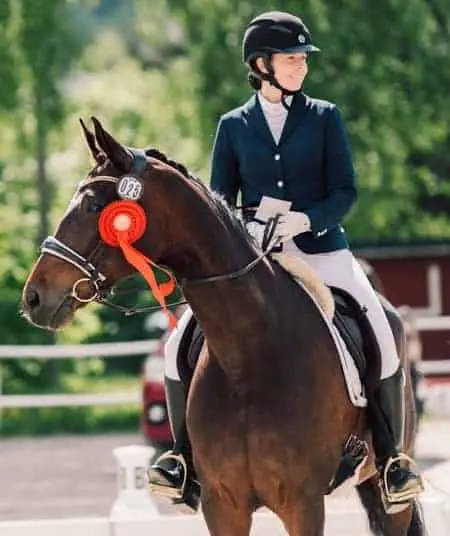
Boosted Confidence and Self-Esteem
Competing in horseback riding events can significantly boost your confidence and self-esteem. Stepping out of your comfort zone and facing the challenge of a competition requires courage and determination. As you progress in your training and see improvements, your confidence will grow. Not only will you gain confidence in your riding abilities, but you will also develop a newfound belief in yourself and your capabilities. The sense of achievement from successfully completing a competition will leave you with a lasting sense of accomplishment.
Choosing the Right Horseback Riding Competition
Before diving into the world of horseback riding competitions, it is essential to choose the right event that aligns with your goals, skill level, and experience. There are various types of competitions available, each with its own set of requirements and expectations. Here are some factors to consider when selecting a competition:
Researching Different Types of Competitions
Take the time to research and understand the different types of horseback riding competitions that are available. From show jumping to dressage, barrel racing to endurance riding, each discipline requires specific skills and techniques. Explore the various disciplines and choose one that interests you and matches your riding style.
Considering Your Skill Level and Experience
Evaluate your current skill level and experience in horseback riding. If you are a beginner, it may be wise to start with smaller, local competitions that cater to riders just starting their competitive journey. As you gain more experience and proficiency, you can gradually progress to larger and more competitive events.
Finding a Compatible Horse and Trainer
Ensure that you have a compatible horse and trainer who can support you throughout your competition journey. A well-trained and suitable horse is crucial for success in competitions. Your trainer should have experience in the specific discipline you are interested in and can provide guidance and support in preparing you and your horse for the event.
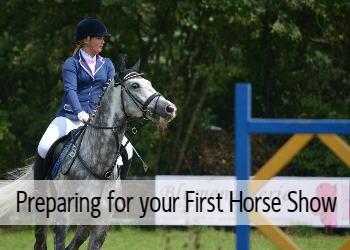
Preparing Yourself Mentally and Emotionally
Preparing for a horseback riding competition goes beyond physical training; it also involves mental and emotional preparation. Here are some tips to help you get mentally and emotionally ready for the competition:
Setting Achievable Goals
Set realistic and achievable goals for yourself in the competition. Whether it’s completing the course without any faults, achieving a certain score, or even just having a positive experience, having specific goals can provide you with something to strive for and help you stay focused during the competition.
Building Self-Confidence
Work on building your self-confidence through positive self-talk and visualization. Remind yourself of your capabilities and past successes. Visualize yourself performing well in the competition, confidently navigating the course, and forming a strong connection with your horse.
Visualizing Success
Use visualization techniques to mentally rehearse your performance. Imagine riding the course flawlessly, executing each maneuver with precision, and receiving positive feedback from judges and spectators. Visualization can help improve your focus, reduce anxiety, and enhance your overall performance on competition day.
Developing a Training Plan
To ensure that you and your horse are adequately prepared for the competition, it is important to develop a comprehensive training plan. Here are some steps to guide you in creating an effective training routine:
Creating a Schedule
Establish a consistent training schedule that allows you to dedicate regular time to practice and preparation. Consistency is key in developing muscle memory and improving your riding skills. Break down your training sessions into specific areas of focus, such as jumps, transitions, or dressage movements.
Working on Horseback Riding Techniques
Focus on improving your riding techniques and skills required for your chosen discipline. Practice different horseback riding movements, such as trotting, cantering, and jumping, to ensure that you are proficient in executing them smoothly during the competition. Seek guidance from your trainer to identify areas for improvement and to fine-tune your techniques.
Practicing Different Maneuvers
Familiarize yourself with the specific maneuvers or movements that you will be required to perform during the competition. Practice these maneuvers repeatedly to build muscle memory and improve your precision and timing. Ensure that you and your horse are comfortable and confident in executing these maneuvers in various scenarios.
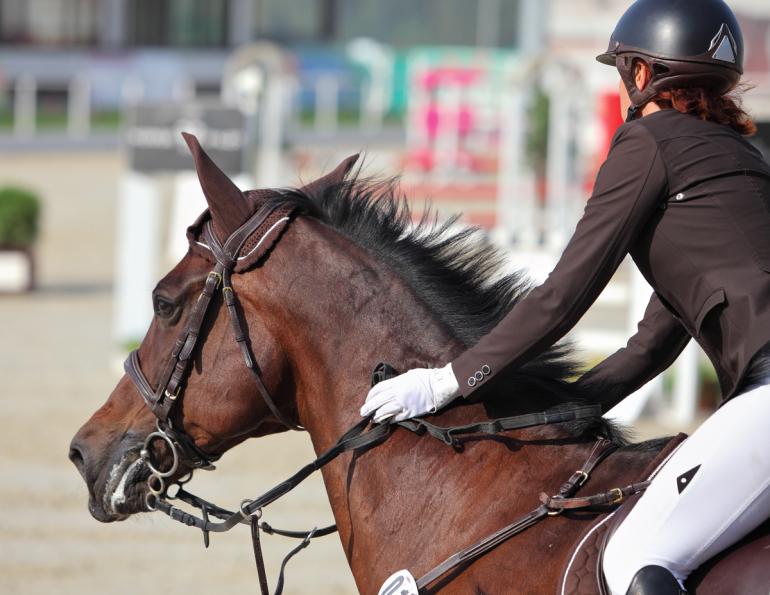
Building a Strong Connection with Your Horse
Establishing a strong connection and bond with your horse is crucial in horseback riding competitions. Here are some tips to help you strengthen the relationship with your equine partner:
Establishing Trust and Respect
Develop a foundation of trust and respect with your horse through consistent and fair training methods. Spend time bonding with your horse outside of training sessions to build a deeper connection. Establish clear communication and boundaries to ensure a harmonious partnership.
Developing Effective Communication
Practice effective communication with your horse through subtle cues and aids. Learn to read your horse’s body language and respond accordingly. By understanding and responding to your horse’s needs and feedback, you can establish clearer communication during the competition.
Building a Bond through Groundwork
Incorporate groundwork exercises into your training routine to strengthen the bond between you and your horse. Groundwork exercises, such as lunging, long-lining, and liberty work, can help improve your horse’s responsiveness and obedience, ultimately enhancing your performance in the competition.
Understanding the Competition Rules and Regulations
To set yourself up for success in your first horseback riding competition, it is crucial to familiarize yourself with the rules and regulations of the event. Here’s how you can ensure that you are prepared:
Familiarizing Yourself with the Rulebook
Obtain a copy of the competition’s rulebook and thoroughly review it. Pay close attention to the specific rules and guidelines for your chosen discipline. Understanding the rules will prevent any surprises or disqualifications during the competition.
Attending Orientation or Briefings
If available, attend any orientation sessions or briefings offered by the competition organizers. These sessions provide valuable information about the competition format, course details, and any specific requirements or changes. Attending these sessions will help you feel more confident and prepared.
Consulting with Experienced Competitors
Reach out to experienced competitors in your discipline and seek their advice and guidance. They can provide valuable insights and tips based on their own competition experiences. Listening to their stories and learning from their successes and mistakes can help you better prepare for your own competition.
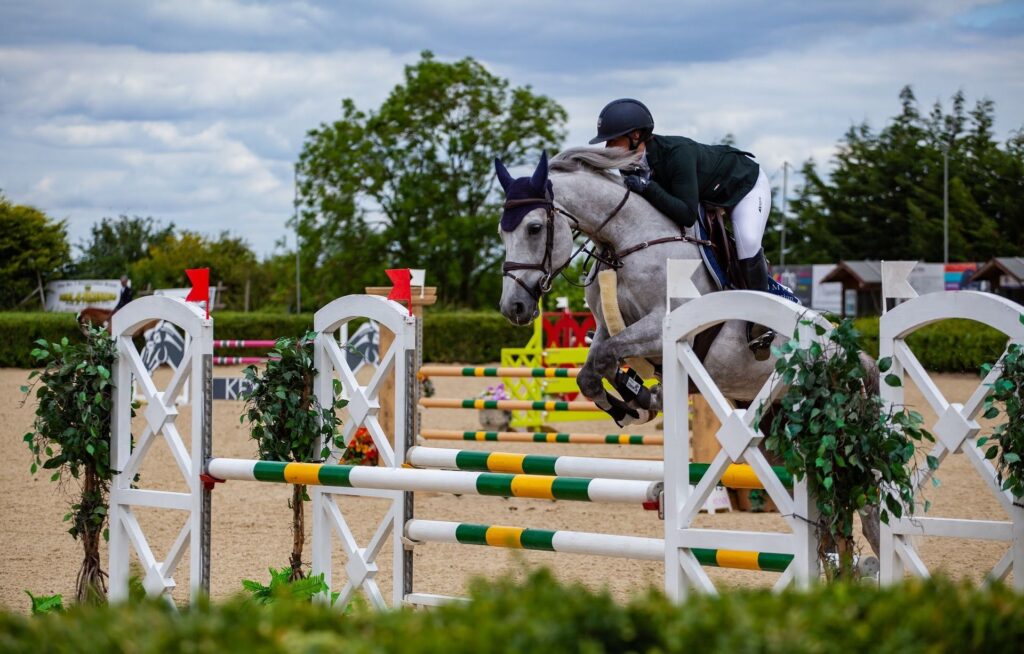
Preparing Your Horse for the Competition
Your horse’s well-being and preparation are equally important as your own. To ensure that your horse is physically and mentally ready for the competition, follow these guidelines:
Regular Exercise and Conditioning
Maintain a consistent exercise routine for your horse leading up to the competition. Conditioning exercises, such as hill work and interval training, can help improve stamina and overall fitness. Gradually increase the intensity and duration of the training sessions to prepare your horse for the demands of the competition.
Proper Nutrition and Hydration
Ensure that your horse is receiving a balanced diet and appropriate nutrition leading up to the competition. Consult with a veterinarian or equine nutritionist to determine the best feeding plan for your horse’s specific needs. Hydration is also crucial, so ensure that your horse has access to clean and fresh water at all times.
Grooming and Tack Inspection
Maintain a grooming routine to keep your horse looking and feeling their best. Regular grooming not only improves their appearance but also helps to promote a healthy coat and skin. Additionally, inspect and clean your horse’s tack to ensure that it is in good condition and properly fitted.
Creating a Checklist for Competition Day
To ensure that you are fully prepared for your first horseback riding competition, create a checklist of essential items and tasks to complete on the day of the event. Here are some items to include on your checklist:
Gathering Essential Equipment and Supplies
Make a list of all the equipment and supplies you will need for the competition. This may include your riding helmet, riding boots, gloves, show attire, grooming tools, and any additional equipment required by the specific discipline. Double-check that you have everything packed and ready to go.
Double-Checking Riding Attire and Safety Gear
Ensure that your riding attire is clean, properly fitted, and meets the competition’s dress code requirements. Check your riding helmet for any signs of wear and ensure that it is certified for equestrian use. Safety should be a top priority, so confirm that your safety gear, such as body protectors or air vests, are in good condition.
Planning for Transportation and Arrival
Arrange for transportation to the competition venue well in advance. Ensure that the vehicle and trailer are serviced and in good working condition. Plan your route to the venue, allowing sufficient time for traffic and unexpected delays. Aim to arrive at the competition site with ample time before your scheduled performance to allow for warm-up and settling-in.
Managing Nerves and Pre-Competition Anxiety
It is natural to feel nervous or anxious before your first horseback riding competition. Here are some techniques to help manage your nerves and pre-competition anxiety:
Deep Breathing and Relaxation Techniques
Engage in deep breathing exercises to help calm your nerves. Take slow, deep breaths, filling your lungs completely, and exhale slowly. Deep breathing promotes relaxation and reduces anxiety. Practice these techniques leading up to the competition and utilize them whenever you feel tense or nervous.
Positive Affirmations and Visualization
Repeat positive affirmations to yourself, focusing on your skills and abilities. Remind yourself of your dedication, hard work, and preparation. Visualize yourself performing confidently and successfully in the competition. This positive self-talk and visualization can help boost your confidence and reduce anxiety.
Engaging in Mindful Activities
Engage in mindful activities, such as yoga or meditation, to help calm your mind and reduce stress. Mindfulness allows you to be present in the moment and let go of any worries or negative thoughts. Find techniques that work for you and incorporate them into your pre-competition routine.
Warming Up and Stretching Before the Competition
Properly warming up and stretching your muscles before the competition is essential to prevent injuries and enhance your performance. Here’s how you can effectively warm up:
Gradual Warm-up Exercises
Begin your warm-up routine with light exercises to gradually increase your heart rate and warm up your muscles. This can include light jogging, stretching, and gentle exercises to improve mobility and flexibility. Gradually increase the intensity of the warm-up exercises as you progress.
Stretching to Improve Flexibility
Incorporate stretching exercises into your warm-up routine to improve flexibility and prevent muscle stiffness. Focus on stretching the major muscle groups used in horseback riding, such as the legs, hips, and back. Hold each stretch for 20-30 seconds and avoid bouncing or jerking motions.
Practicing Basic Riding Movements
Include basic riding movements, such as transitions between gaits, circles, and lateral movements, in your warm-up routine. These exercises not only warm up your horse’s muscles but also help you establish a connection and communicate effectively with your equine partner.
Executing a Successful Performance
When it’s time for your actual performance, it is important to stay focused and calm. Here are some tips to help you execute a successful performance:
Staying Focused and Calm
Keep your focus on the task at hand and try to block out distractions. Trust in your training and preparation, and believe in yourself and your horse’s abilities. Remind yourself to stay calm and composed throughout your performance.
Following the Course or Routine
Pay close attention to the course or routine and follow it precisely. Visualize each jump or movement before executing it. Maintain a steady pace and rhythm, and be aware of your horse’s position and balance.
Maintaining Good Form and Position
Focus on maintaining a correct riding position and effective aids. Good form and position will not only improve your overall performance but also ensure the well-being and comfort of your horse. Maintain a soft and independent seat, maintain a light contact with the horse’s mouth, and use clear and precise aids.
Dealing with Competition Pressure and Setbacks
Competitions can be intense, and it’s important to manage the pressure and handle setbacks effectively. Here are some strategies to help you cope:
Managing Expectations and Mistakes
Set realistic expectations for yourself and understand that mistakes are a part of the learning process. Accept that not every performance will be flawless and view setbacks as opportunities to learn and improve. Focus on your progress and the overall experience rather than just the end result.
Coping with Disappointments
If you experience disappointment or receive feedback that may not be what you expected, take it as an opportunity for growth. Analyze the feedback, learn from it, and use it to improve your skills and performances in the future. Remember that competitive riding is a journey, and setbacks are a natural part of the process.
Learning from Unsuccessful Performances
Instead of dwelling on an unsuccessful performance, use it as a learning experience. Reflect on what went wrong and identify areas for improvement. Seek guidance from your trainer or experienced riders to help you overcome any challenges and develop strategies to be better prepared for future competitions.
Taking Care of Your Horse after the Competition
After the competition, it is essential to prioritize the well-being and recovery of your horse. Here are some steps to ensure the proper care of your equine partner:
Cooling Down and Proper Rest
Implement a proper cooldown routine to allow your horse’s muscles to recover after the competition. Gradually reduce the intensity of the exercises and focus on walking and stretching. Provide your horse with ample rest time to recover from the physical and mental exertion of the competition.
Post-Competition Grooming and Care
Groom your horse thoroughly after the competition to remove any sweat or dirt from their coat. Pay special attention to their legs and hooves to ensure cleanliness and prevent any discomfort or infections. Check for any signs of injuries or soreness and provide appropriate treatment if necessary.
Monitoring for any Signs of Discomfort
Keep a close eye on your horse in the days following the competition. Monitor for any signs of discomfort, such as lameness, stiffness, or loss of appetite. If you notice any concerning symptoms, consult with a veterinarian for a comprehensive evaluation and appropriate treatment.
Conclusion
Preparing for your first horseback riding competition is an exciting and challenging journey. By following these steps and guidelines, you can ensure that both you and your horse are adequately prepared for the event. Remember to take the time to build a strong connection with your horse, set realistic goals, and manage your nerves. As you navigate the world of horseback riding competitions, embrace the ups and downs, celebrate your achievements, and learn from every experience. Good luck with your first competition and future endeavors in the equestrian world!
Frequently Asked Questions
-
What are some common horseback riding competition disciplines?
- Show jumping, dressage, eventing, barrel racing, endurance riding, and western pleasure are some of the common horseback riding competition disciplines.
-
How can I find the right horseback riding competition for me?
- Research different types of competitions and consider your skill level and experience. Consult with trainers and experienced competitors for guidance and recommendations.
-
How can I build a strong bond with my horse before a competition?
- Spend quality time with your horse outside of training sessions, engage in groundwork exercises, and focus on effective communication and mutual respect.
-
What should I do to warm up before a competition?
- Gradually warm up your muscles and increase your heart rate. Incorporate stretching exercises and practice basic riding movements to prepare yourself and your horse for optimal performance.
-
How can I manage competition pressure and cope with setbacks?
- Set realistic expectations, view setbacks as learning opportunities, and seek guidance from trainers or experienced riders. Emphasize personal growth and focus on the overall journey rather than just the end result.
-
How should I care for my horse after a competition?
- Implement a proper cooldown routine, groom your horse thoroughly, and monitor for any signs of discomfort or injuries. Provide your horse with adequate rest and seek veterinary care if needed.
-
What should I do if I feel nervous before a competition?
- Engage in deep breathing and relaxation techniques, use positive affirmations and visualization, and incorporate mindful activities into your pre-competition routine.
-
How can I choose the right competition attire and equipment?
- Ensure that your attire meets the competition’s dress code requirements and that your equipment is in good condition. Consult with trainers or experienced riders for guidance on appropriate attire and equipment for your chosen discipline.
-
What if my performance in the competition doesn’t go as planned?
- View setbacks as opportunities for growth, analyze feedback, and use it to improve your skills and performances in the future. Seek guidance from trainers or experienced riders to overcome challenges.
-
What are some signs of discomfort or injuries in horses after a competition?
- Lameness, stiffness, unwillingness to move, loss of appetite, or any abnormal behavior may indicate discomfort or injuries in horses. Promptly consult a veterinarian for proper evaluation and treatment.
